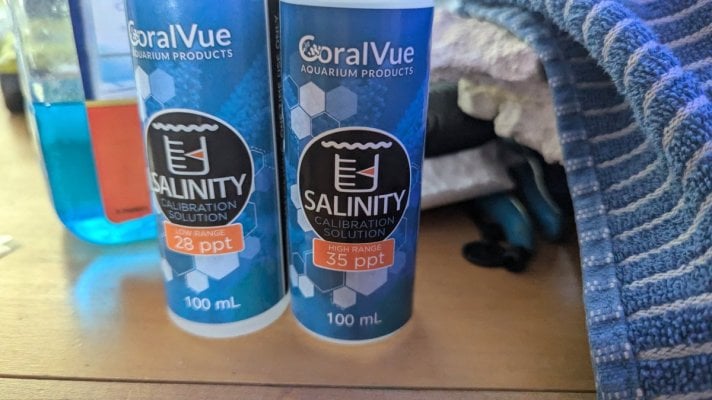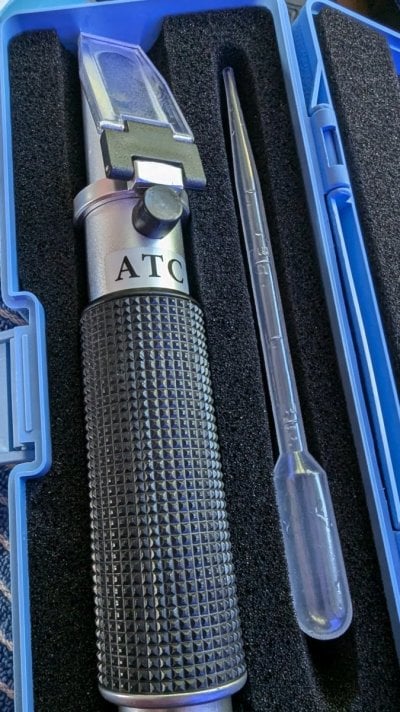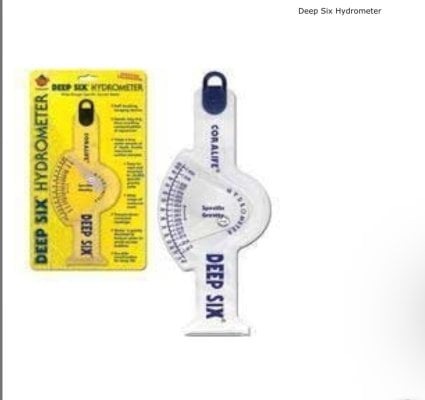Hi,
I have a tropic Marine hydrometer that reads 1.24 salinity at 78 degrees water temp. I also have a freshly calibrated hydrometer that reads a solid 37 - converted to 1.26.
I know it may not matter but it bothers me.
Calibration fluids came with the hydrometer and are at room temperature 72 degrees. Is the shift this high for temp?
Would love all of your opinions. How to get these devices to say the same thing?
I have a tropic Marine hydrometer that reads 1.24 salinity at 78 degrees water temp. I also have a freshly calibrated hydrometer that reads a solid 37 - converted to 1.26.
I know it may not matter but it bothers me.
Calibration fluids came with the hydrometer and are at room temperature 72 degrees. Is the shift this high for temp?
Would love all of your opinions. How to get these devices to say the same thing?
























